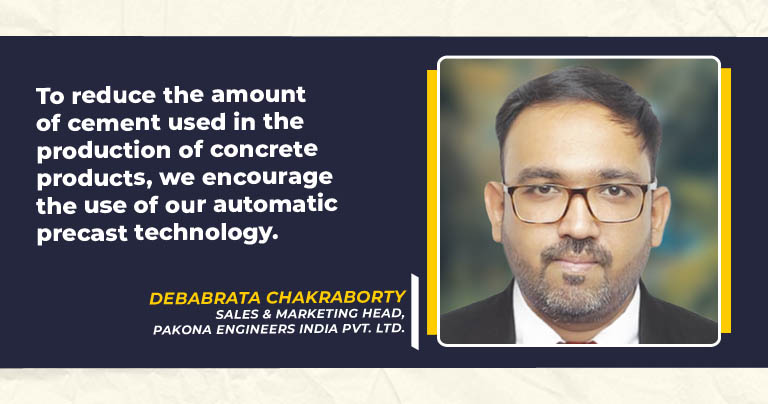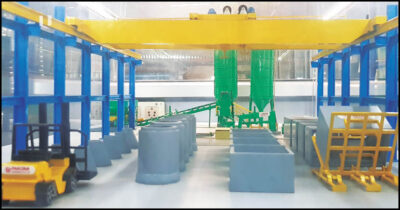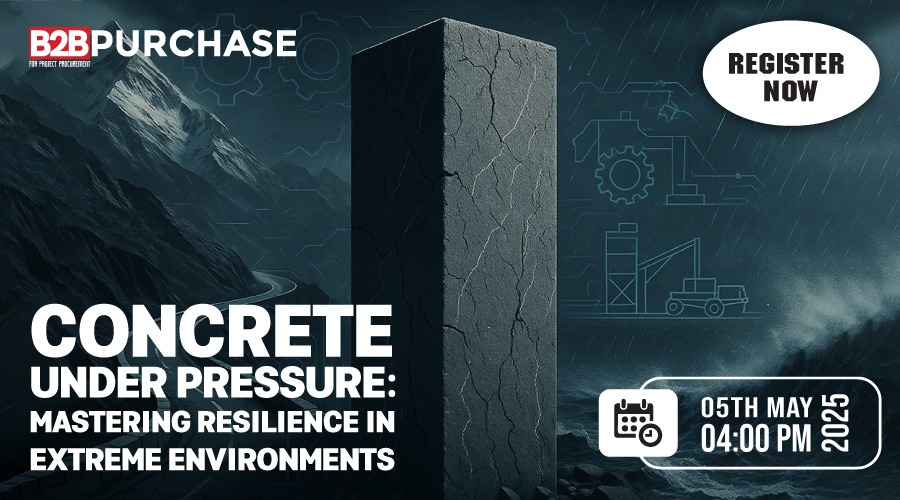We promote SCMs to reduce CO2 emissions
By Edit Team | January 5, 2023 2:51 pm SHARE

In an exclusive interaction, Mr. Debabrata Chakraborty from Pakona discusses their essential products and addresses project and environmental safety requirements.
What will be your primary focus at bauma 2023?
The infra sector is our primary focus at bauma.We have a variety of solutions that can help to accelerate infrastructure projects.
What are your thoughts on digitalising construction operations in the coming years?
Digitalisation is the need of the hour, and we have already worked on technologies that can help our clients monitor their assets seamlessly.
What are the key products and solutions offered by the company?
Pakona offers state-of-the-art equipment like concrete pipe-making machines for reinforced or non-reinforced pipes, round pipes, pre-beds, manhole chamber machine covers, vertical cast RCC pipe machines, box culvert-making machines, risers, HDPE liner pipes, vertical cast pipe, RCC cement pipe, and manhole chamber machines.
What are the advantages of a fully automatic machine (MACH 1600) over a semi-automatic machine?
The cost of an EOT crane of 25–30 tonnes is between ₹ 30 and 40 lakhs, and access is restricted to within the shed only. A forklift is weighing 8-10 tonnes used in the automatic machine costs between ₹20 and ₹ 25 lakh. As a result, the total cost of equipment and shed in semi-automatic is approximately ₹ 50-60 lakhs higher. Electricity consumption is 20 percent higher in semi-automatic (because of the EOT crane) than in automatic consumption. Semi-automatic machines require more workforce (of 12–15) than automatic machines. The fully automatic machine moulding and demolding machines are auto-driven, resulting in faster and more efficient production: manual moulding and de-moulding result in 50percent less production in semi-automatic machines.

Can you brief us about your organisation’s manufacturing facilities?
Pakona Engineers is at the forefront of developing indigenous precast solutions; we manufacture in India and ship our products worldwide.
The export of made-in-India equipment has good market potential, we need to be competitive, and India can become a manufacturing hub for global construction equipment.
Precast Industry has great potential in bringing sustainable construction as its more resource efficient, brings in speed and is a factory-made product.
What are your outlook on project safety and management requirements?
Safety is critical in all infrastructural projects, and we need to continuously educate our customers on how to handle equipment and train them with the “Know Your Equipment” series of built-in auto safety features like Poka-yoke (mistake proofing).
What are the environmental safeguards in place to manage carbon footprints?
We encourage the use of supplementary cementitious material to reduce the use of cement in manufacturing precast products; this can help considerably lessen the project’s carbon footprint.
Cookie Consent
We use cookies to personalize your experience. By continuing to visit this website you agree to our Terms & Conditions, Privacy Policy and Cookie Policy.





































-20240213125207.png)

























